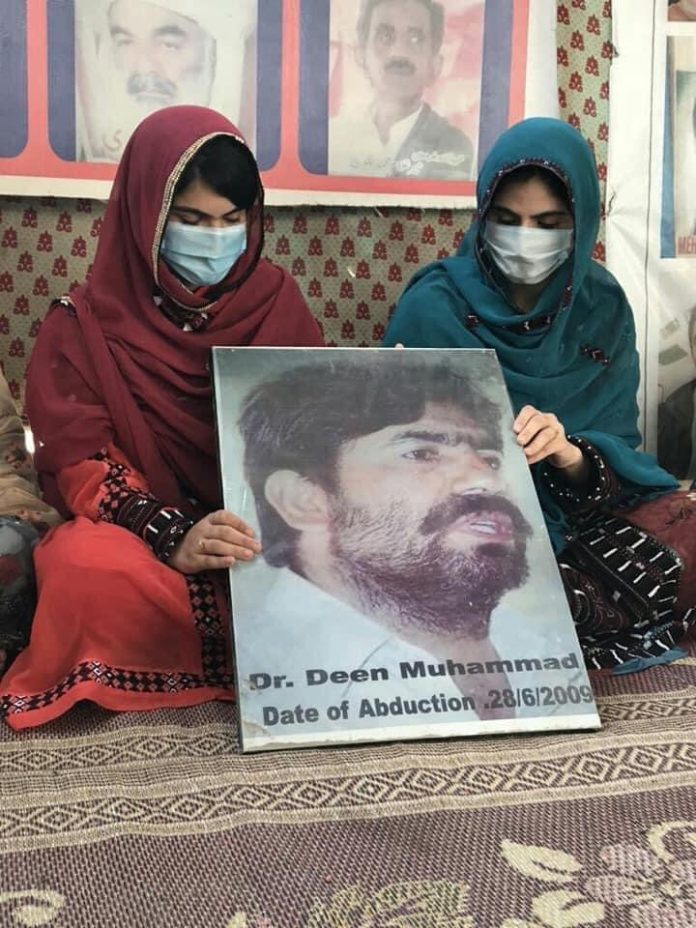It has been 14 long years since Dr. Deen Muhammad Baloch, a practicing doctor and Baloch political activist, was forcibly disappeared from his workplace at a public hospital in Ornach, Khuzdar. Abducted nearly at midnight on June 28, 2009, his children Sammi and Mehlab have grown up with only a photograph to remember their father by.
Sammi Deen, now a young woman, recalls the solitary memory of her father’s photo as they spent their childhood desperately searching for him across the roads of Pak-occupied-Balochistan. On June 28, 2009, at about 1 a.m., Army personnel in plain clothes broke into the hospital where he was working. They beat, blind-folded, and hand-cuffed him and threw him into a military vehicle and took him away. Since then, nothing is known about his whereabouts.
“We have only his photograph left as a memory”, she says, her voice a portrait of resilience in the face of injustice.
Dr. Baloch was not only a practicing doctor but an active member of the Baloch National Movement (BNM), a pro-independence political party operating in Pakistan’s restive Balochistan province. Several leaders and activists of the party have been abducted and many extra-judicially killed by the Army, including its founder and chairman, Ghulam Mohammad Baloch, secretary general, Dr Mannan Baloch, and information secretary, Razak Sarbazi.
Dr. Baloch’s abduction by Pak security forces is just one of the many cases of enforced disappearances used by the Army to crush the Baloch liberation movement and silence political dissent. His crime was being an educator who worked tirelessly to mobilize his people in their struggle for independence.
The family tried registering a case with the police in Khuzdar and filed a petition in the Pak-occupied-Balochistan High Court but all in vain. Despite several protests and marches, not a trace of Dr Muhammad has been found.
Despite being illegal under international law, Pak forces have subjected countless Baloch civilians and political workers to this cruel practice for over two decades with impunity.
Rights groups have long condemned enforced disappearances as a tool of Army terrorism. According to VBMP, over 80,000 Baloch individuals have been forcibly disappeared since 2001. This figure would make it one of the most severe cases of enforced disappearances globally.
The Baloch Students Organization (BSO) Azad has announced an online campaign from June 8 to amplify victims’ accounts and “expose the criminal nature of the Pak Army and its dehumanizing tactics against the Baloch masses.”
For Sammi and countless other families, the wait for their loved ones remains a torturous existence with no resolution in sight.
As Baloch activists persist in demanding accountability, the world witnesses the heavy toll of Pakistan’s iron-fisted policies in the restive, resource-rich region. For Sammi and Mehlab, however, their father’s enforced disappearance remains an unhealed wound that fuels their generational fight for justice and freedom.

